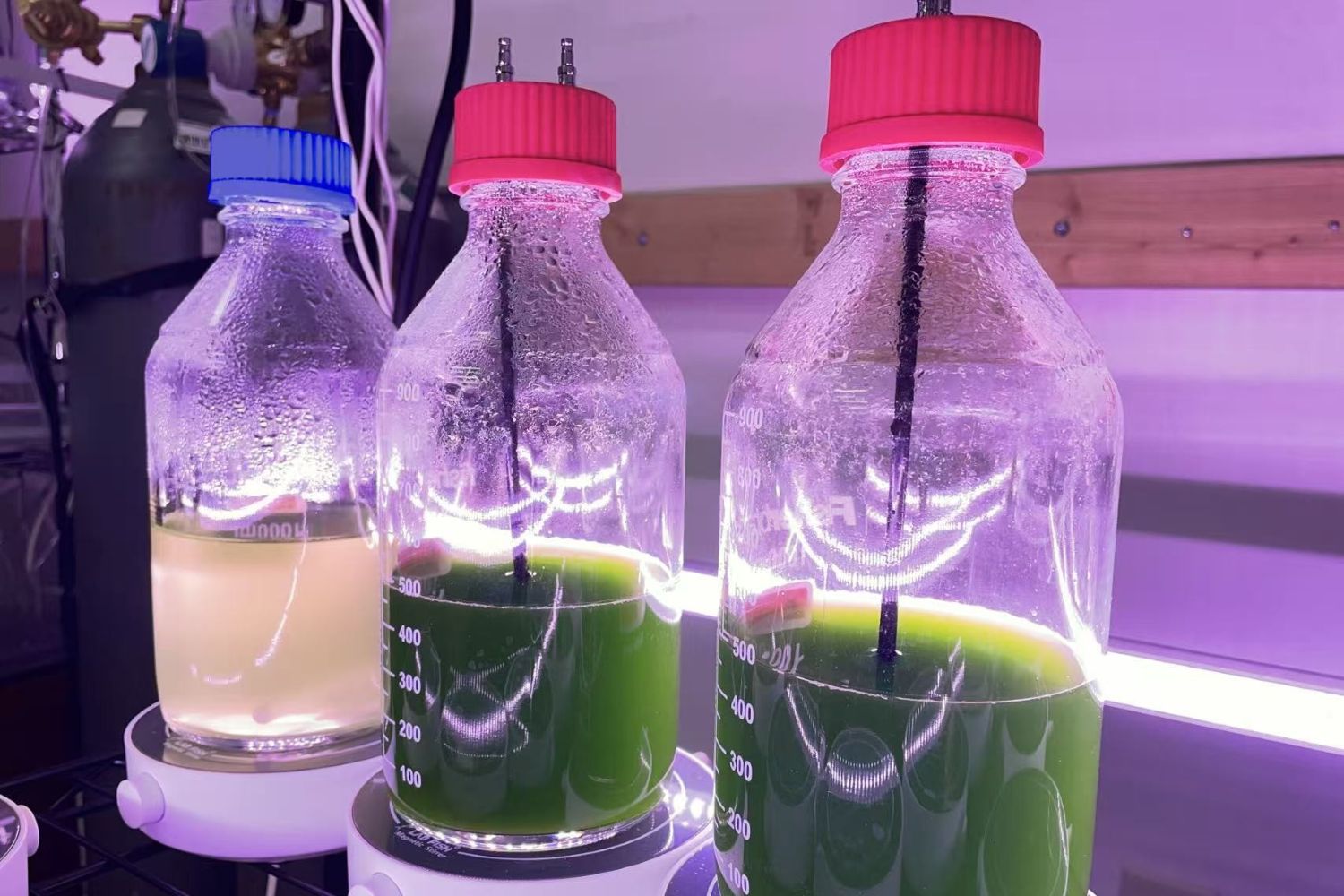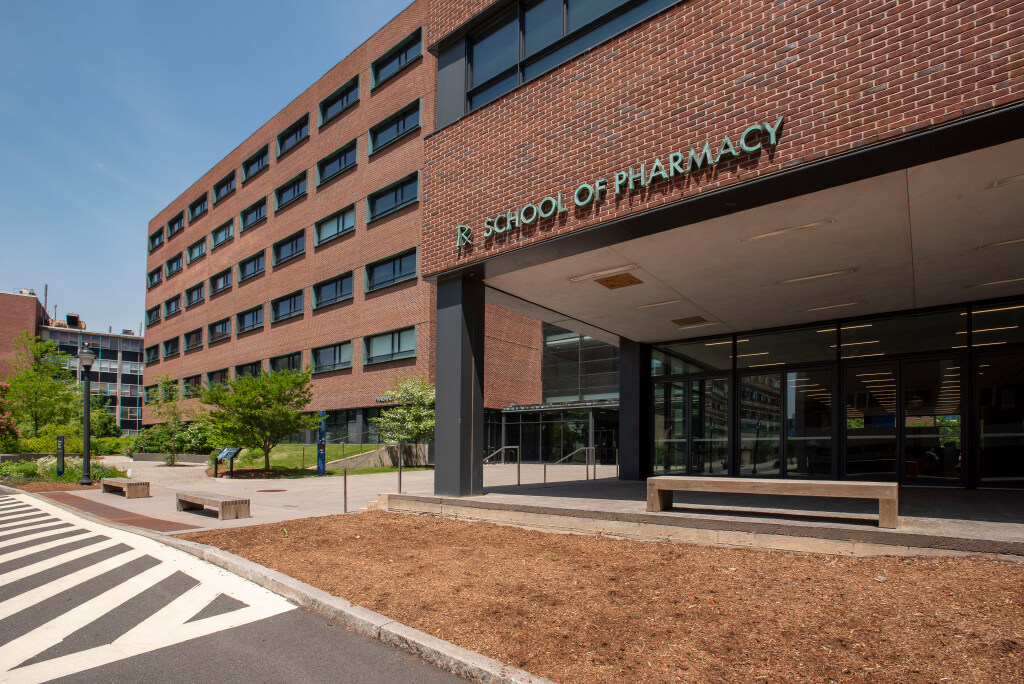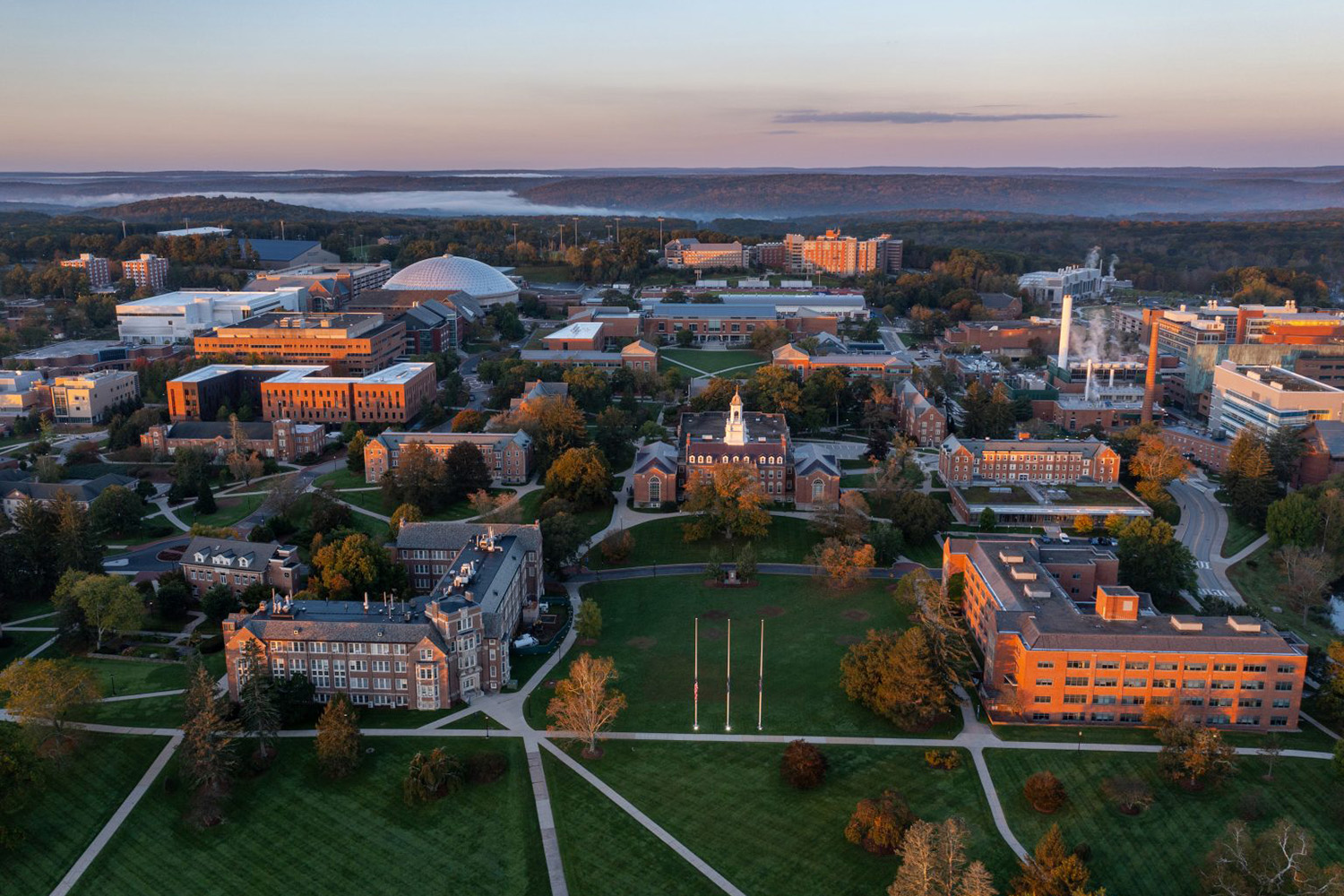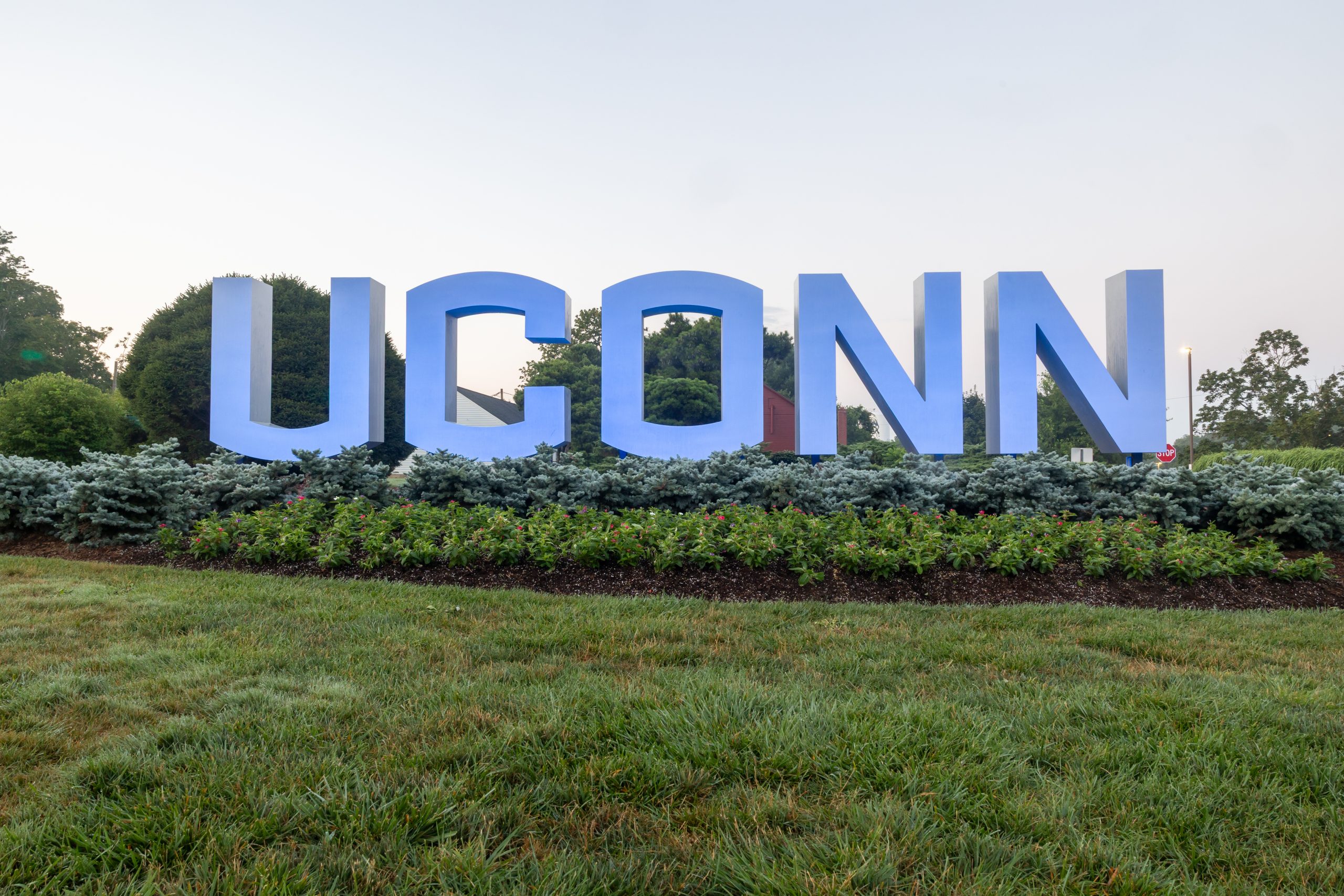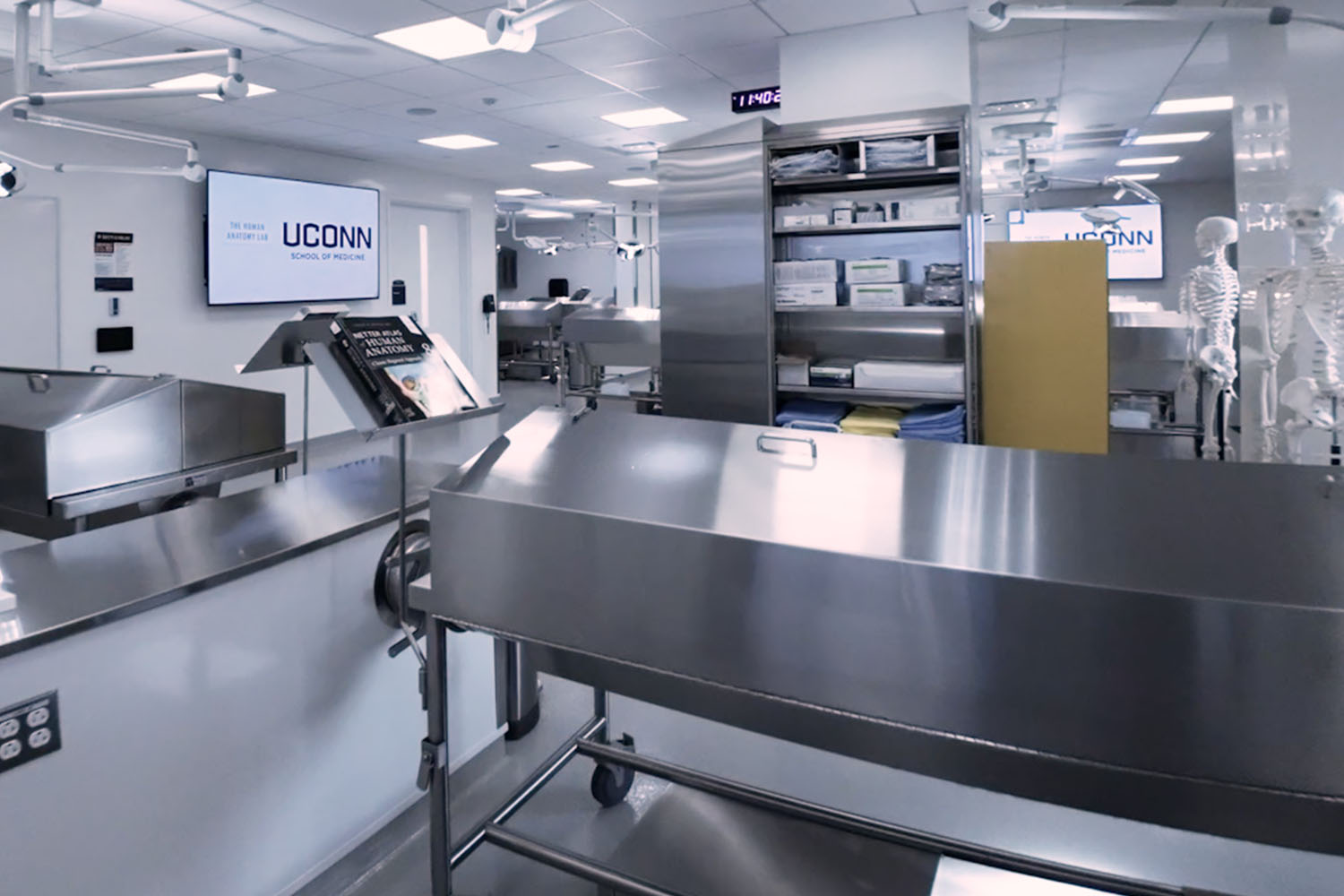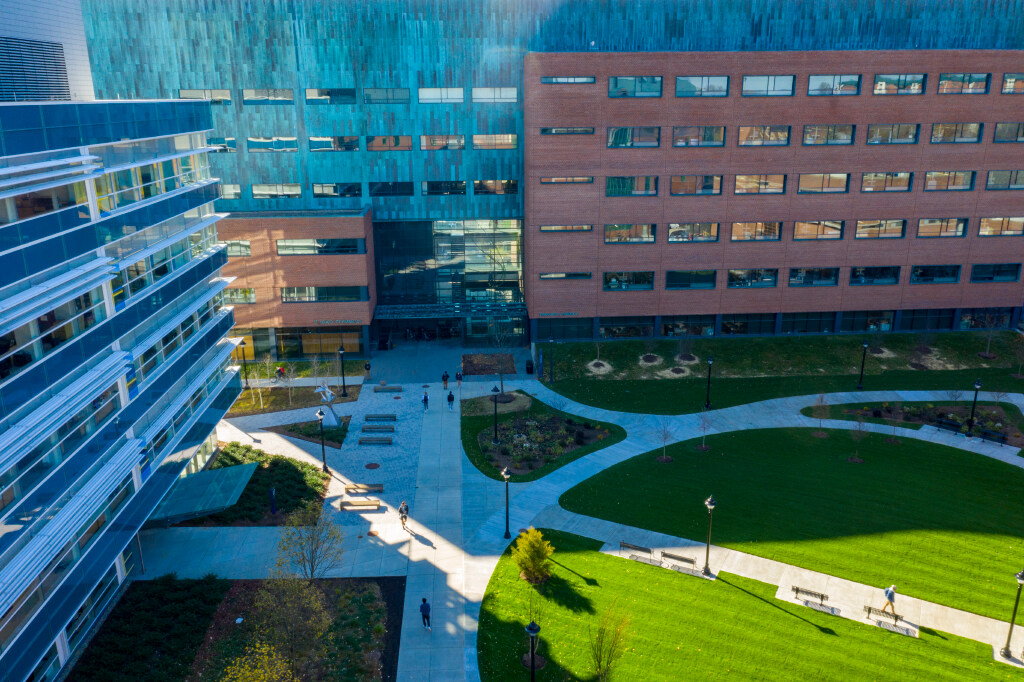Turning Microalgae into a Sustainable High Protein Food Solution
As climate change and a growing global population strains our existing food supply, scientists are looking on land and at sea for innovative solutions.
Yangchao Luo, associate professor, and Mingyu Qiao, assistant professor in innovation and entrepreneurship, in the Department of Nutritional Sciences in the College of Agriculture, Health and Natural Resources have found a way to grow microalgae with a significantly higher protein content. These results were published in Biomass and Bioenergy.
The team found that by changing the amount of nitrogen, carbon, and sunlight the microalgae get while growing in a lab, the tiny marine plants produced up to 25% more protein. By increasing the organic carbon concentration and adjusting the carbon to nitrogen ratio, they were able to increase the protein biomass (how much of the microalgae is protein) from a quarter to a third to half.
“Through feeding the microalgae with different media – different carbon sources, different nitrogen sources, and different minerals – we tried to customize or tailor the metabolism of microalgae to produce specific nutrients,” Luo says.
The researchers developed a “mixotrophic approach” that combines different ways microalgae grow in the wild. Autotrophic growth is fully photosynthetic – using light to produce biomass. Heterotrophic growth is when the microalgae grow in complete darkness, relying on carbon.
“We combined the benefits of both autotrophic and heterotrophic growth,” Luo says. “We provided light, but also the organic carbon source.”
This approach can also be used to make the microalgae produce a higher proportion of carbohydrates or lipids, depending on the desired application.
This high-protein microalgae could be used as an additive in poultry feedstock as well as for direct human consumption.
Currently, the only way poultry raised for food, a major global protein source, can get the essential amino acid methionine is through petrochemical-based feed supplements. High-protein microalgae, which has a high methionine content, is a promising sustainable alternative.
Another key development in this study is that the researchers used sodium acetate rather than glucose as the carbon source for the microalgae. Sodium acetate is much cheaper than glucose, making this approach more attractive to industry and farmers.
Another benefit of sodium acetate is that it is a byproduct of food waste, meaning there will is and always be an abundant supply.
The group has received a grant from the USDA to study how to use the sodium acetate from whey, a byproduct of cheese production, to grow high-protein microalgae. They will work with the cheese production facilities at UConn to source the whey.
“This will serve as a proof-of-concept study to prove that we’re able to grow microalgae from this very inexpensive and sustainable carbon source that is also a major product from the food waste fermentation processes,” Luo says. “Eventually we hope to utilize microalgae as remediation against food waste so we can utilize food waste and turn it into a very valuable protein supply for human consumption or poultry feed.”
This work was supported by the U.S. Department of Energy’s Algae Prize, U.S. Department of Agriculture, the Algae Foundation and a National Science Foundation Future Manufacturing grant.
This work relates to CAHNR’s Strategic Vision area focused on Ensuring a Vibrant and Sustainable Agricultural Industry and Food Supply.
Follow UConn CAHNR on social media
Latest UConn Today
- Two UConn Pharmacy Students Attend the Prestigious Boehringer Ingelheim Emerging Scientist Talent ProgramUConn Pharmacy Ph.D. students, Ashwin Abhang and Nileshkumar Malavia, attended the Boehringer Ingelheim Emerging Scientist Talent Program (BEST), a prestigious event for future innovators.
- Deborah Shelby Retires After 27 Years in CLASSince joining the College of Liberal Arts and Sciences in 1998, Shelby has been a key member of the Dean’s Office and has helped the College navigate nearly three decades of growth and change
- UConn Researchers Receive NSF CAREER AwardsFive early career UConn faculty received NSF CAREER Awards to support their research, education, and outreach efforts
- Honoring Life Through LearningThanks to the Anatomical Donation Program, students benefit from a hands-on experience
- UConn, Connecticut Wealth Management Launch New Program to Prepare Future Financial Advisers110 students have already expressed interest
- From Storrs to Dublin and Back Again: Two Pharmacy Students’ Study Abroad ExperiencesTrading campuses and sharing cultures, Emily Ray and Emma Lopes each chose studying abroad as an opportunity to learn more about the pharmaceutical industry and challenge themselves in a new environment – making memories and building skills that will extend beyond their time as pharmacy students!



